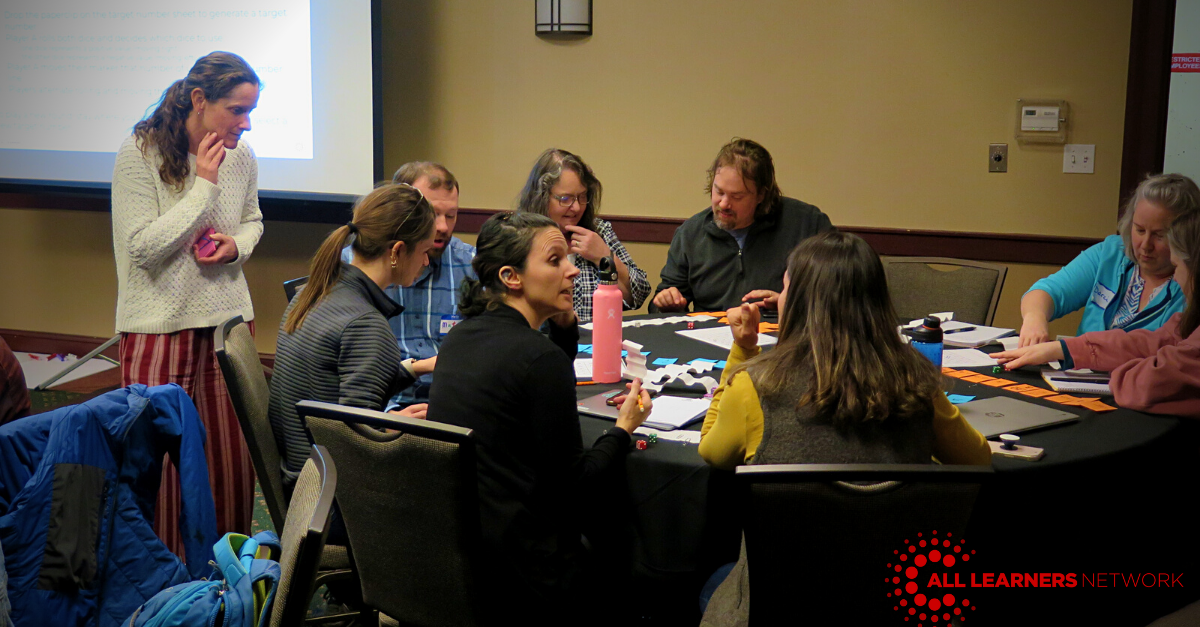
What makes professional learning effective?
Educator professional development is a mixed bag in many school districts. Teachers are exposed to workshops and trainings on topics as diverse as dealing with blood-borne pathogens to content-specific work for individual disciplines. The quality of these programs can vary wildly, as can their applicability for individual teachers. I recently provided a workshop on differentiating math instruction for a group of teachers where half of the participants didn’t teach math, for example. In this short article, I’ll examine two professional development-related questions: When does professional development matter? When is it effective?
What does the research say about professional development?
Teacher professional development is a relatively well-studied area of education research, though opinions vary on the quality of the methods used to study professional development. What Works Clearinghouse (WWC), the federal organization that demands a randomized control trial (RCT) approach has only identified 9 studies that meet their methodological standards. These studies, all in elementary school settings, suggest that 14 hours of professional development is a minimum threshold to see changes in teacher understanding and behavior. The Institute of Education Sciences (IES)'s report on WWC studies (REL Southwest, 2007) also points to a persistent issue with research on professional development: studies usually measure outcomes on teachers but do not, ultimately, account for student impact. IES also suggests that national studies are focused on professional learning pitched exclusively at teachers, rather than models that might include the training of instructional coaches to support teacher growth.
Leaning Forward (formerly the National Staff Development Council), an organization dedicated to supporting teacher professional learning, has identified five “conditions” that contribute to effective professional development:
- Establishing a shared vision
- Using data to set goals and drive improvement
- Aligning resources
- Building leadership capacity
- Sustaining implementation of new practices through effective change management (Leaning Forward, 2017).
When does professional development matter?
Learning Forward (and the research that supports their work) suggests that professional development matters when it is purposeful, collaborative, and based on real needs identified with relevant data. These conditions add context to the need for professional development to be of high quality and sufficient duration to realize substantive change. According to some research on professional development, programming to improve student outcomes needs an environment that supports high-quality instruction to make a difference.
When is professional development effective?
Professional development programs provided by All Learners Network (ALN) are effective because they're designed to leverage what works best to improve teacher practice. We collaborate with district math leaders to identify student improvement goals using data. We focus on instructional practice over the use of specific programs. We emphasize embedded professional development in addition to workshops to make use of feedback and modeling.
Sometimes math professional development can seem like the delivery of a curriculum, rather than a response to specific district needs. At ALN our goal is, always, to improve student math outcomes. To achieve this goal, we look at school/district math data. When conducting a math audit before working with a district, we spend hours observing teachers, talking to students and administrators, and finding out how math works in a district. We look for relative strengths in instructional practices and identify areas for improvement. These data, both quantitative and qualitative, are used to collaborate with math leaders to identify areas of focus and create a roadmap for improvement.
While there is a commonly held belief that a new math program will improve student outcomes, we rarely find this true. Some programs do offer better materials than others. In general, though, the highest and lowest-performing schools use the same programs. The key to success for high performance is high teacher skill. Teacher quality impacts student outcomes (Darling-Hammond, 2000). In our considerable experience, we find that improving teacher skill will translate directly into better student performance. An effective teacher is far more important than the material with which they teach. ALN is focused on improving teacher skill to achieve better outcomes for more students.
Finally, we draw on concepts from deliberate practice (Macnamara & Megha, 2019) to support the work we do during embedded professional development. Expert practice can improve when practitioners receive in-the-moment feedback, focused on what matters most. ALN facilitators work in school classrooms with teachers and coaches to provide expert feedback aimed at helping teachers be most effective. While ALN workshops provide usable techniques aimed at increasing teacher skill, our work with teachers and coaches in the classroom environment helps schools and districts realize measurable improvement in student outcomes as a result of ALN professional development.
References
Darling-Hammond, L. (2000). Teacher Quality and Student Achievement. Education Policy Analysis Archives, 8,1.
Leaning Forward. (January, 2017). A New Vision for Professional Learning. EducationCounsel.
Macnamara, B.N.& Megha, M. (2019). The role of deliberate practice in expert performance: revisiting Ericsson, Krampe & Teasch-Romer (1993). R.Soc.Open Sci 6:190327.
REL Southwest. (2007). Reviewing the evidence on how teacher professional development affects student achievement. REL 2007-No. 033




